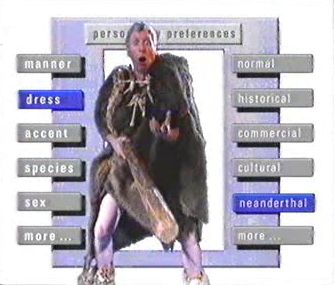Hyperland (Douglas Adams,Max Whitby, UK, 1990, 50 minutes)
Douglas Adams, author of The Hitchhiker's Guide to the Galaxy, has a dream about the future of interatctive information technology, and is led by a software agent named Tom (played by Tom Baker, the fourth Doctor Who) who shows him the future of television through the development of hypertext.
As with any speculation about the future, this is just as interesting for what it gets wrong as for what it gets right. Still, one wishes we still had Douglas Adams around to ask questions about the current media environment.
Ways of Seeing (John Berger, Mike Dibb, UK, 1972, 120 minutes)
John Berger's book Ways of Seeing has become a classic in cultural studies, art history, and the ideological study of art and culture. This documentary produced with the book is harder to find except in these kind of You Tube versions. A similar version can be found at UbuWeb with a brief essay about the film by Nick Currie.
Currie writes: It would be easy to say that Ways of Seeing is hopelessly dated -- made in 1972, the films come across as a puritan-groovy mix of Monty Python, the Open University and the Look Around You spoofs. And yet what's so remarkable about this series is that it seems more apposite, subversive and thought-provoking than ever. The Britain we glimpse in the films, already alienated by spooky BBC Radiophonic Workshop music by Delia Derbyshire, is alienated even more by the passing of time. Alienated usefully, in the Brechtian sense; we look at a capitalist society which is like, and unlike, our own.



No comments:
Post a Comment